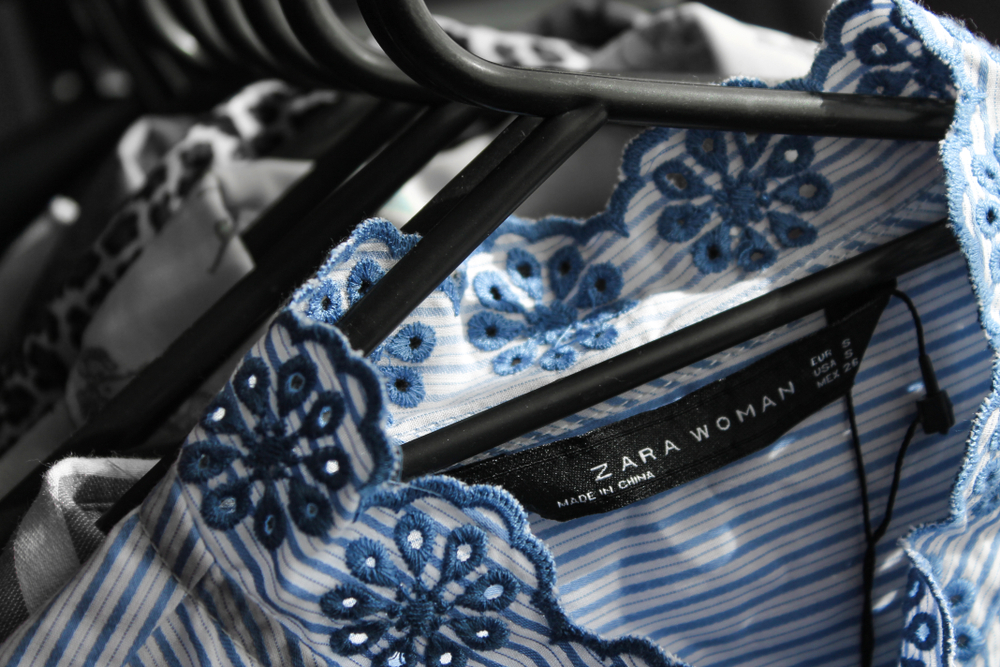As retailers try to highlight sustainability claims amid growing unease about the annual spending spree, consumers should remember that ‘compostable’ and ‘biodegradable’ plastic can do more harm than good, says Hubbub’s Trewin Restorick
Black Friday’s frenzy of consumerism is here, with retailers seeking to persuade us to buy things we never knew we needed. The arrival of Black Friday has not been greeted with unfettered joy by the UK public. Research from Hubbub, the sustainability communications charity that I head, has revealed that two-thirds of people don’t enjoy taking part, and half feel uncomfortable with the whole idea.
Knowing that this disquiet exists, advertisers are seeking to put a green sheen on their products, hoping to overcome any sense of guilt people might be feeling. At Hubbub this has become apparent through a growing number of emails from PR companies. A typical message runs along the lines of: “Our client is phasing out some plastic packaging, but it is going to take 12 months and in the meantime they are looking for an option to recycle what they are still producing.”
We suggest investing in a collaborative long-term solution being developed for hard-to-recycle plastics, only to be met with a sigh as this clearly doesn’t meet the brief of the short-term, high-profile gain required. Sure enough, within a few weeks we see an announcement that the packaging can now be recycled if people are willing to post it somewhere. If sufficient packaging is collected, it will eventually turn into a park bench in a randomly selected adventure playground.
Companies have been quick to grasp that the public views plastic as bad whilst anything with words like 'compostable' and 'biodegradable are good
The initiative creates another peripheral recycling scheme that is almost certainly resource-intensive, probably not financially sustainable and places even more burden on people to act. Meanwhile, the longer-term systemic change is starved of the funding and support it requires.
The surge of environmental interest has seen the return of greenwashing, but this time it is dressed in more sophisticated clothing. Companies have been quick to grasp that the public views plastic as bad whilst anything with words like “compostable” and “biodegradable” are good.
A plethora of new products have arrived on the market with these definitions, neatly avoiding the fact that although the description might technically be accurate, it is almost certainly never going to happen because the appropriate recycling systems don’t exist in the UK.

The result is that companies are paying more, believing that they are doing the right thing, but ironically might be causing a bigger problem. If you put compostable or biodegradable packaging into traditional recycling bins they can cause contamination, reducing the value of other recycling. It also increases public confusion, as it is counter-intuitive to put a compostable coffee cup into a food bin. Even if you do, the chances are that it will be removed for incineration or landfill as it won’t break down sufficiently quickly.
Another growing trend is for companies to fall back on language that sounds good in theory, but is difficult to define. A classic is fashion retailer Zara’s recent announcement that “all of its clothing collections will be made from sustainable materials before 2025”.
Hubbub has undertaken some research for the All-Party Parliamentary Group exploring sustainable fashion and it is very clear that nobody currently has a clue about what constitutes a “sustainable material”. Zara’s statement sounds good but side-steps the bigger conversation about the impact of growing levels of consumption driven by fast fashion.
Media outlets need to scrutinise press releases and start questioning statements that have good headlines but little substance
The danger of the return of greenwashing is that businesses and people will feel they are doing the right thing whereas they might be exacerbating the problem and will almost certainly be avoiding the more challenging conversation around consumption levels.
What then needs to be done to stop this trend proliferating? Media outlets need to scrutinise press releases more thoroughly and start questioning statements that have good headlines but little substance. The Advertising Standards Agency needs to ensure that false claims are not being made. Environmental pressure groups have a role to call out bad practice and to shine the light on dubious claims through social media.
At Hubbub we are seeking to respond by being crystal-clear about our strategic objectives, as witnessed through the recent launch of a sustainable food strategy. We hope that if agencies understand our long-term objectives, they will be less inclined to use us as part of their short-term green smokescreen.

Trewin Restorick is founder of sustainability communications charity Hubbub. trewin@hubbub.org.uk @trewinr
Black Friday fast fashion Sustainable fashion bio-plastics Zara


